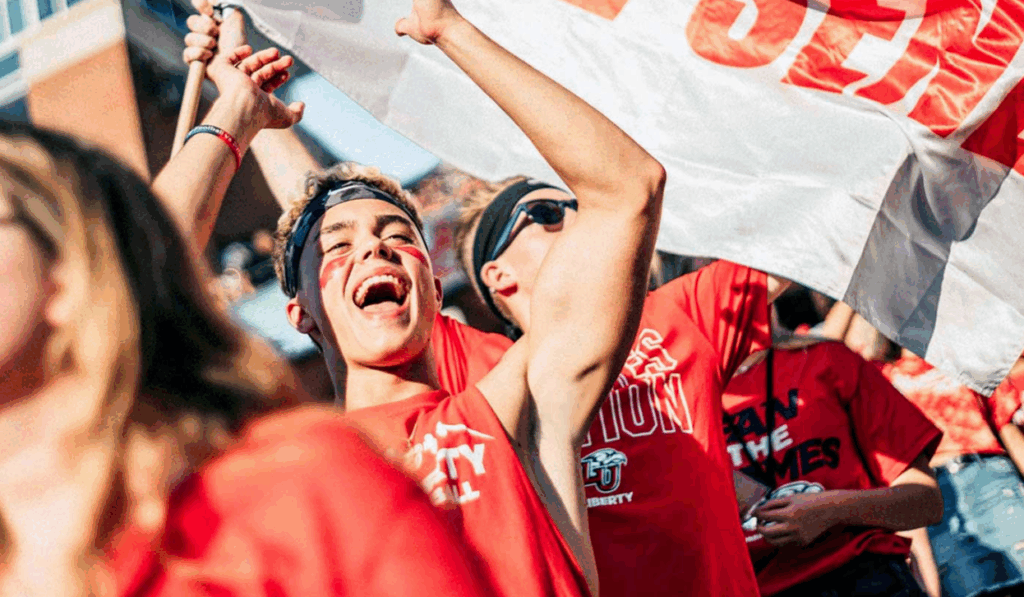Have you noticed how sports exist in an entirely different universe today compared to just fifteen years ago? Your favorite athletes now share pregame rituals, family moments, and unfiltered opinions, creating direct connections that were once impossible. This transformation actively reshapes everything from how athletes build their careers to how they play games.
The social media revolution in sports offers unprecedented access and opportunity, but at what cost to the athletes themselves?
Sports Coverage in the Digital Age
While traditional media once dominated sports coverage through newspapers and television broadcasts, social media has revolutionized how we consume athletic content. Sports journalism transforms into a 24/7 cycle where updates happen in seconds, not days.
Digital communication platforms like Twitter and Instagram have created spaces where highlights go viral before TV networks can air them. Athletes bypass traditional press conferences and break news to fans directly.
Independent commentators and sports influencers now compete with established networks for alternative perspectives and analysis. That democratization of sports content no longer means you can stick to one story. Instead, you can create your own sports experience with the accounts and platforms you follow.

Athlete Branding and Personal Identity
Social media has turned athletes into accessible brands with personalities. See how they build their online name with relevant content that highlights their professional and personal achievements.
Today’s sports figures control their narratives instead of being media gatekeepers. The authenticity of their content strategy often balances commercial interests with fan engagement. Such a direct connection with audiences offers unprecedented monetization potential but also carries significant risk. One controversial post can undo years of brand building.
The most successful athlete influencers understand this balance. They create content that feels genuine while strategically building their personal brand’s long-term value.
Fan Engagement and Community Building
The direct athlete-to-fan relationship extends beyond personal branding into a domain of unprecedented two-way communication. You’re no longer just observing sports. You’re participating in conversations with your favorite athletes through comments, direct messages, and shared content.
Social media has created digital fan communities that discuss games, reactions, and create viral content that sometimes reaches the athletes themselves. All these fan-generated memes, highlight compilations, and tribute videos are sports culture staples.
These days, athletes are part of the conversation. Whether it’s replying to fans or taking their feedback to heart, they’re showing up in ways that feel real. That kind of connection builds loyalty and gives you a level of access that used to be unthinkable, changing how you experience sports on a personal level.

Sponsorships and Marketing Strategies
As digital platforms have redefined sports, brands want athletes with large social media followings instead of traditional endorsement deals. Engagement rates and follower demographics help companies determine an athlete’s marketing value beyond their on-field performance.
Sport marketing focuses on genuine influencer partnerships. Athletes aren’t just posting. They’re building real connections with their audiences through branded content. These collaborations often use smart hashtags and platform tools to get in front of more people and track what’s working.
It’s a much more direct way to reach consumers. Instead of just slapping a logo on a jersey and hoping for the best, today’s partnerships drive clicks, sales, and real-time feedback. It turns athletes into powerful marketing hubs with built-in distribution and loyal followings.

Controversies and Mental Health
Digital platforms have opened up huge marketing opportunities for athletes. However, this advancement has also put them under a microscope. One tweet, one slip-up, and things can blow up fast, turning into full-blown controversies that seriously hurt their brand.
Studies indicate chronic online criticism can be mentally draining for players, with 41% of professional athletes reporting social media anxiety. Others hire specialists to handle their accounts, keeping away from toxic comments while maintaining a digital presence.
The pressure to be perfect online adds stress to an already stressful career. Mental health protocols of teams address the impacts of social media, such as digital detoxes during critical competition periods and psychological support for handling viral controversies.
Social Media’s Role in Live Events and Sports Journalism
Social media has transformed how sports events connect with audiences since traditional press boxes started emptying a decade ago. Instant updates from Twitter now precede TV broadcasts reaching the action, and fans can watch highlights wherever they are.
Live streaming has democratized access to sports performance footage, creating second-screen experiences where viewers simultaneously watch events while participating in online conversations. This shift has disrupted sports journalism dramatically. Reporters must now break news on social platforms first, then develop longer analysis later.
The result? A faster, more democratic information flow but with potential sacrifices in accuracy and depth. Today’s sports consumers enjoy unprecedented access, while journalists navigate a landscape where being first often trumps being thorough.
Frequently Asked Questions
How Has Social Media Affected Sports Recruitment Processes?
Social media has revolutionized recruitment by letting you showcase your skills through highlight reels. Coaches can discover talent worldwide, rate player character, and contact prospects directly.
Can Athletes’ Social Media Activity Influence Game Outcomes?
Yes, athletes’ social media activity can influence game outcomes. When you’re distracted by online drama or lose sleep managing your platforms, your performance often suffers. Mental focus is critical for athletic success.
How Are Sports Rules Changing in Response to Social Media?
Sports leagues implement instant replay reviews, tighter rules on athlete conduct online, and expanded sideline technology policies. They’re now adapting governance specifically for viral moments and social media backlash.
What Legal Issues Arise From Athletes’ Social Media Use?
Athletes’ social media use raises legal concerns including defamation, copyright violations, breach of contract, endorsement disclosure requirements, and privacy issues. You’ll need to understand these risks to protect your professional career and reputation.
How Does Social Media Impact Small-Market Versus Large-Market Teams?
Social media helps you bridge competitive gaps between small and large market teams. Smaller teams use creative content to gain followers, while larger teams leverage existing fame for greater monetization opportunities.




